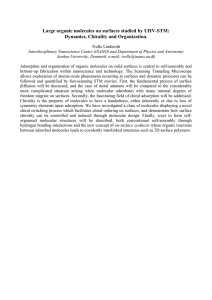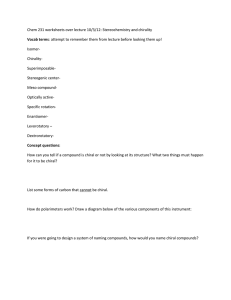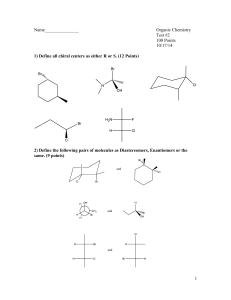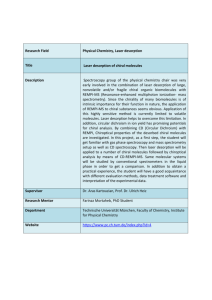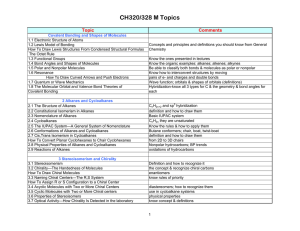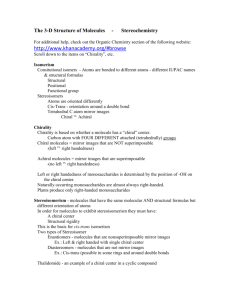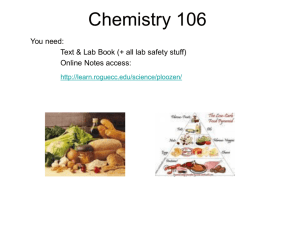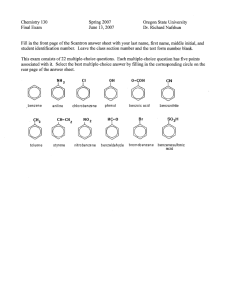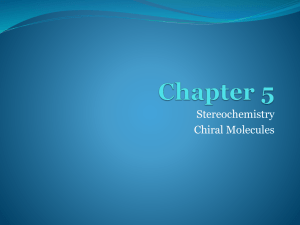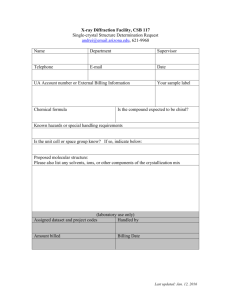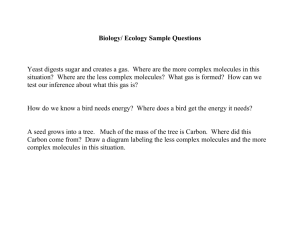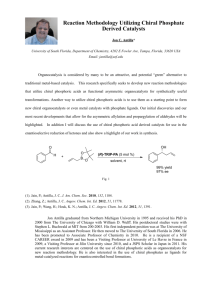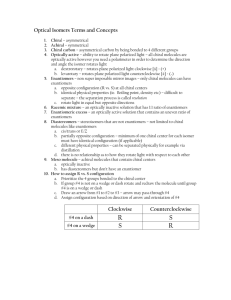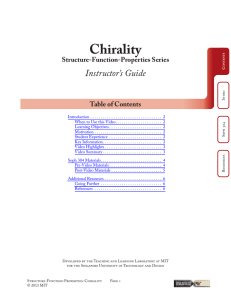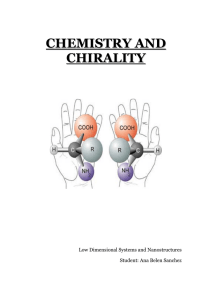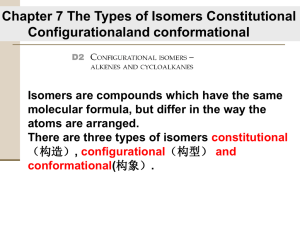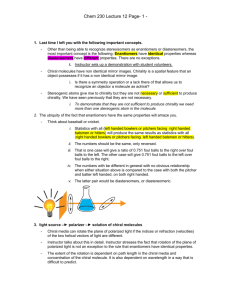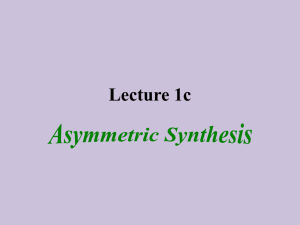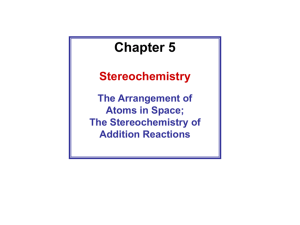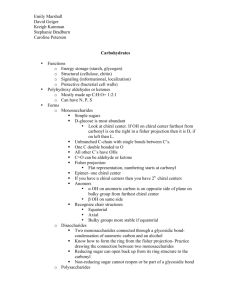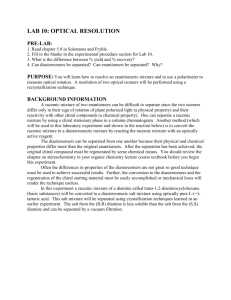5. Determining molecular chirality with femtosecond lasers.
advertisement
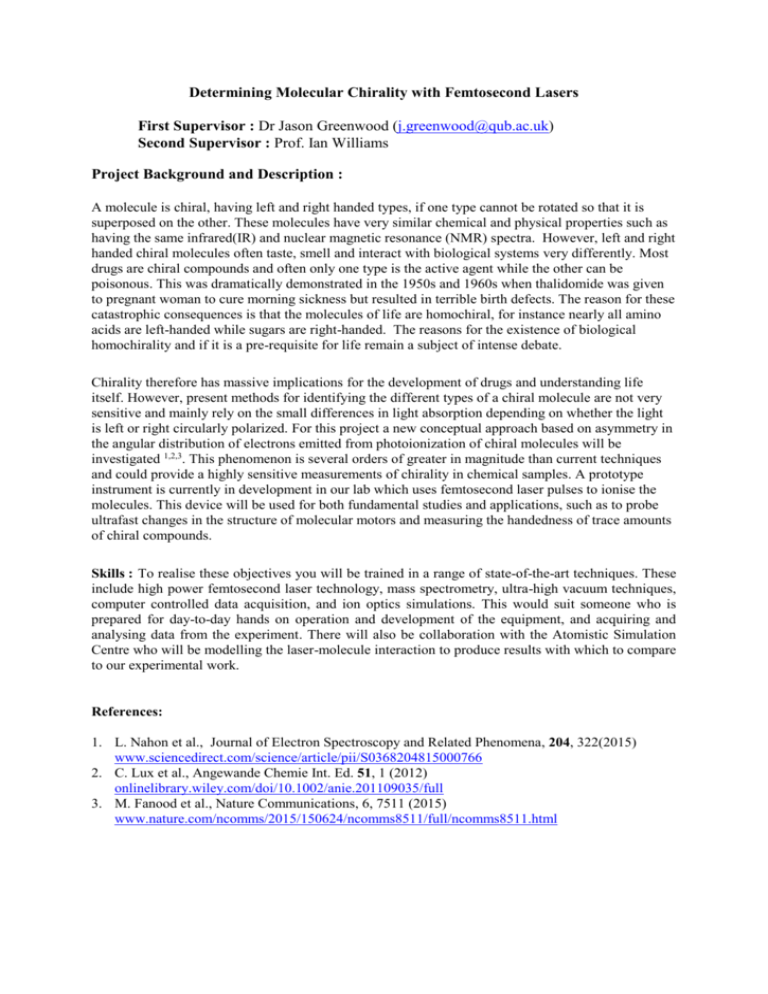
Determining Molecular Chirality with Femtosecond Lasers First Supervisor : Dr Jason Greenwood (j.greenwood@qub.ac.uk) Second Supervisor : Prof. Ian Williams Project Background and Description : A molecule is chiral, having left and right handed types, if one type cannot be rotated so that it is superposed on the other. These molecules have very similar chemical and physical properties such as having the same infrared(IR) and nuclear magnetic resonance (NMR) spectra. However, left and right handed chiral molecules often taste, smell and interact with biological systems very differently. Most drugs are chiral compounds and often only one type is the active agent while the other can be poisonous. This was dramatically demonstrated in the 1950s and 1960s when thalidomide was given to pregnant woman to cure morning sickness but resulted in terrible birth defects. The reason for these catastrophic consequences is that the molecules of life are homochiral, for instance nearly all amino acids are left-handed while sugars are right-handed. The reasons for the existence of biological homochirality and if it is a pre-requisite for life remain a subject of intense debate. Chirality therefore has massive implications for the development of drugs and understanding life itself. However, present methods for identifying the different types of a chiral molecule are not very sensitive and mainly rely on the small differences in light absorption depending on whether the light is left or right circularly polarized. For this project a new conceptual approach based on asymmetry in the angular distribution of electrons emitted from photoionization of chiral molecules will be investigated 1,2,3. This phenomenon is several orders of greater in magnitude than current techniques and could provide a highly sensitive measurements of chirality in chemical samples. A prototype instrument is currently in development in our lab which uses femtosecond laser pulses to ionise the molecules. This device will be used for both fundamental studies and applications, such as to probe ultrafast changes in the structure of molecular motors and measuring the handedness of trace amounts of chiral compounds. Skills : To realise these objectives you will be trained in a range of state-of-the-art techniques. These include high power femtosecond laser technology, mass spectrometry, ultra-high vacuum techniques, computer controlled data acquisition, and ion optics simulations. This would suit someone who is prepared for day-to-day hands on operation and development of the equipment, and acquiring and analysing data from the experiment. There will also be collaboration with the Atomistic Simulation Centre who will be modelling the laser-molecule interaction to produce results with which to compare to our experimental work. References: 1. L. Nahon et al., Journal of Electron Spectroscopy and Related Phenomena, 204, 322(2015) www.sciencedirect.com/science/article/pii/S0368204815000766 2. C. Lux et al., Angewande Chemie Int. Ed. 51, 1 (2012) onlinelibrary.wiley.com/doi/10.1002/anie.201109035/full 3. M. Fanood et al., Nature Communications, 6, 7511 (2015) www.nature.com/ncomms/2015/150624/ncomms8511/full/ncomms8511.html Jason Greenwood Current PhD Students Jordan Miles – DEL, ends Sept 2016 Simone De Camillis – Leverhulme Trust, ends Sept 2016 Current Funding Grant Title A Novel LIAD Source for the Enhanced Study of Molecular Dynamics Ultrafast Intra-Molecular Electron Dynamics High Sensitivity Enantiomer Analysis via Stereo Photoelectron Circular Dichroism Funding Body Leverhulme Trust Grant No. RPG-2012-735 PI Ownership 100% Duration 1/4/13 – 30/9/16 Value £71k Engineering and Physical Sciences Research Council Engineering and Physical Sciences Research Council EP/M001644/1 PI 100% 1/1/15 – 30/6/16 £101k PI 100% 1/4/16 – 30/9/18 (£385k) pending
